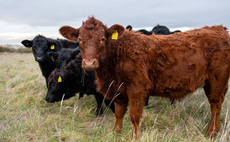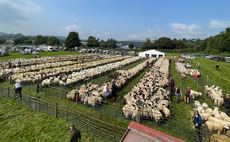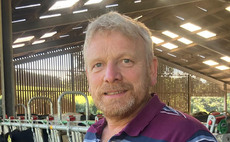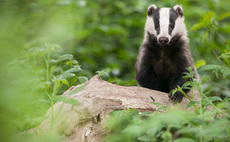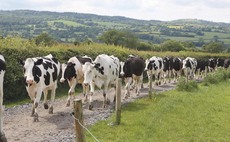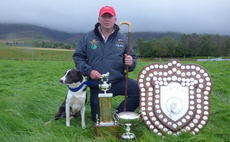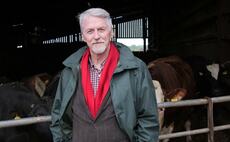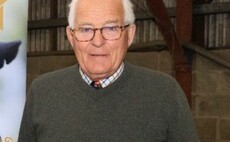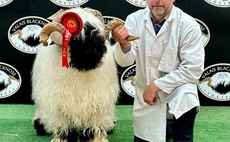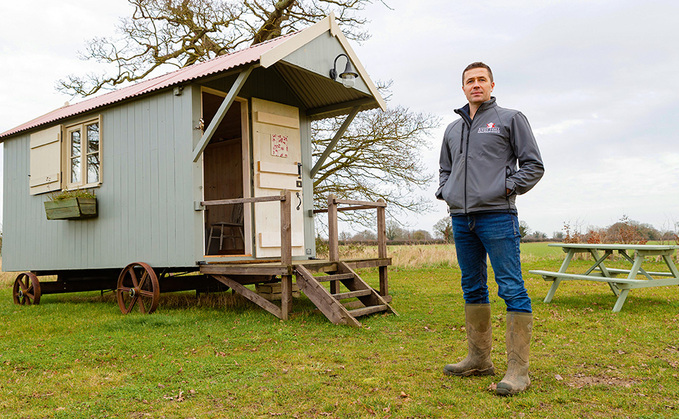
After a successful career in television Jeremy Buxton returned to his Norfolk roots to take over management of the family farm in Booton near Reepham. Clemmie Gleeson reports.
Working in TV saw Jeremy Buxton working overseas and ‘living the high life' while pursuing his love of sports. One particular highlight of his 12 years living and working in Paris was presenting his own Eurosport series documenting his experiences training and playing with professional sports people.
Jeremy says: "I was really privileged to have incredible opportunities."
He reached a crossroads in 2012 when he decided he wanted a more settled life and came back to England, initially thinking he would continue as a journalist.
"I gave myself some time off to decide what to do next and I started helping my dad on the farm. I enjoyed it so much and realised it would give me the opportunity to settle down and stop living out of suitcases," he says.
He had a keen eye for business opportunities too and could see there was great potential for expansion and diversification including the addition of a beef suckler herd, and a campsite amongst other projects. And his father Robert was in the process of thinking about slowing down. There had been a suckler herd in the past, but now the farm was solely arable and mostly contracted out to enable him to spend more time with the family.
Soon after arriving back in Norfolk, Jeremy met Kathryn who works as a personal assistant for a local solicitor's firm.
They have since married, built a family house on the farm and had son Edward who is now three. Jeremy knew straight away he wanted to return Eves Hill to mixed farming. The family own 101 hectares (250 acres) which included some permanent pasture, so reintroducing cattle was an obvious first step. He has since taken on a further 57ha (140 acres) of rented grazing.
"Being a small farm, I felt it was the right way to go," he says. "It was clear that the farm needed more revenue streams, so it all tied-in nicely and made sense to have cattle back."
Cattle
In 2013 he made his first purchase of a small number of pedigree Herefords from the dispersal sale of Greg Flack's Northamptonshire based herd.
"We hit the ground running with some great cattle," says Jeremy.
"Through Greg I then met other breeders and they have all been like mentors to me."
When considering breeds Jeremy knew he wanted a native beast that was easy to handle and that would do well on grass and grass forage.
"I also think they look absolutely amazing - real picture postcard animals," he says.
He built a cattle shed to give the option of winter accommodation, but plans for the spring calving herd to spend most of the year outside.
He says: "They come in for weaning but ultimately we're trying to have them outside for as long as possible. Just two weeks inside for weaning would be the dream."
The total herd now stands at 55-head of cattle including 38 females which he plans to grow to around 50 breeding females. His current stock bull is Bondes Hubert, a Danish bred bull. Cattle are fed on silage with some of the younger animals being given some creep while the breeding bulls have the addition of some milled cereals as and when needed.
"I monitor everything quite closely. We don't push anything - we're not in a rush - but as the commercial herd develops, we may re-evaluate that."
The last three beef animals were killed at 28 months old with carcase weights of 600kg. Initially the plan was to sell breeding stock while Jeremy built up numbers and this has been a successful income stream from the start, but he soon recognised a keen local market for beef too. And when some grazing land came up down the road, it meant he could potentially do both by creating a small commercial herd as well.
The beef boxes, marketed under his Norfolk Beef Company brand, have been very popular and Jeremy is now talking with restaurants and pubs who are keen to use locally produced beef.
He says: "Our best return is from the beef boxes sold direct to customers, but we're beginning to sell to local pubs and restaurants as well. We will be able to commit to more when the herd has grown.
"It's only the beginning at the moment.
"I've been focusing on ring fencing everything - elite health status, red tractor, farm assurance and proving traceability is so important now. I believe there's huge demand and we've just scratched the surface locally. I want to take it further afield.
"There's been a lot of doom and gloom about cheap food imported from abroad. I see it as an opportunity to highlight the quality of British produce, but you've got to send out the right messages.
"Yes most people are price sensitive when shopping but there are others who can afford to be a bit more selective.
"That means we have to communicate with our customers and be open and transparent about what we are doing.
"Historically as an industry we have not been very good at that."
Sustainable
One means of doing that has been his involvement in the Papillon Project, a local initiative which encourages schools and colleges to get involved in growing their own food. Jeremy also takes opportunities to speak to young people about careers in farming and offer work experience.
In his first year back, a friend invited Jeremy along to the Oxford Real Farming Conference which inspired him to focus on sustainability and soil health.
"A lot was said about sustainable farming and that is something I've really worked hard to produce to make sure that my son can carry on farming if he wants to."
Robert had introduced min-til about 10 years ago, a system which Jeremy remains committed to.
He uses cover crops to keep soils covered and these provide winter grazing for the cattle too. Both Jeremy and his parents - who he formed a partnership with - are keen environmentalists as well. Higher Level Stewardship projects on the farm include field margins, floristic margins, meadows and plots of woodland.
The farm's soils vary from light to heavy and the current rotation is winter wheat, spring barley and oilseed rape.
"I am constantly looking at the rotation to see what we can change. I would love to get away from commodity crops and try to do something different. I am very open to change.
I would really love a vineyard. It is a pipedream at the moment but could indeed be possible one day."
In the shorter term he plans to build the Eves Hill Farm brand with the addition of a farm shop and tea room and has already secured planning permission for those.
The farm campsite was launched in 2014, and it has grown steadily in popularity with the most successful marketing from word of mouth.
He says: "Last year we also dipped our toes into glamping with a shepherd's hut. The campsite is now the most profitable land on the farm."
In the future Jeremy hopes to be able to employ help on-farm so he can devote more time to his business plans.
"I now want to be working on the business and not so much in the business," he says. "I want to be able to continue seeking out opportunities."
Succession
As well as his numerous diversification projects he is keen to develop partnerships with other local businesses such as a recent collaboration with a vineyard to market beef and wine pairings.
"I don't miss my previous life - I love what I'm doing now," says Jeremy.
"Despite all the challenges in the industry there's an awful lot of potential on this farm. Not so much in a traditional sense but as a business and diversification there's so much potential for growth.
"We wouldn't survive if we were just a farm with some cattle - that's a fact.
"I've always been very driven and ambitious. It's about wanting to have an impact and be a role model for my son as well as wanting to be a force for good in the industry and local community.
"Very little is financially driven. It's more about personal challenges, goals and enjoying the ride."
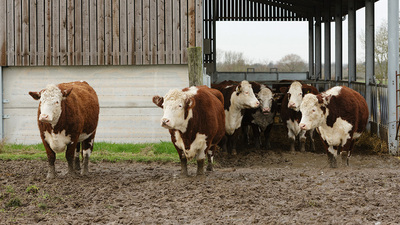
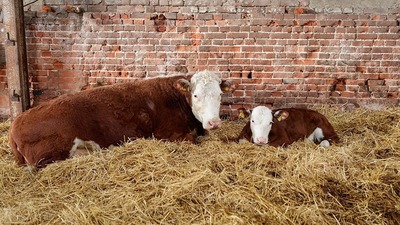
Farm Life hub
- For more from the rural community, recipes and blogs, go to the






